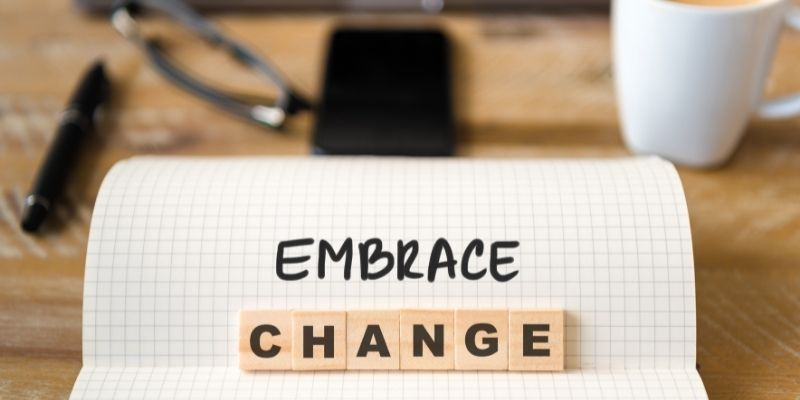
Do you ever feel like money is a source of stress in your life? Do you find yourself constantly worrying about whether or not you have enough money to cover your expenses? If so, you’re not alone.
Millions of people around the world struggle with money problems on a daily basis. But what many people don’t realize is that these money problems are usually a result of their money story.
In this blog post, we will discuss what money stories are and how to rescript yours for a more positive outcome.
Why knowing your money story is important?

Your money story is the set of beliefs and emotions that you have about money. It’s the voice in your head that says things like, “I can’t afford that,” or “I’m not good with money.”
This story usually starts developing in childhood from all of the influences around you, such as the express words from your parents or caregivers, the actions you observed in others, and the feelings you picked up on (like a stressful home environment every payday).
While you can’t choose your money story growing up, the good news is that you can change it. Why is this important?
Because your money story has a direct impact on your relationship with money as an adult.
If your story is negative, it can lead to money problems like the ones we mentioned above.
But if you have a positive story, it can help you make better decisions with your money and achieve your financial goals.
Questions to Ask Yourself to Identify Your Money Status?
Now that you know what a money story is and why it’s important, you may be wondering how to identify your own story.
Here are some questions to ask yourself:
- How do I feel when I think about money?
- What beliefs do I have about money?
- What emotions come up for me when I think about money?
- What is my relationship with money?
- What money decisions have I made in the past?
- How have my money decisions affected my life?
- How has my earlier childhood experience with money influenced my current relationship with money?
- How do I want my relationship with money to be?
- What money decisions do I need to make in order to achieve my desired relationship with money?
- What steps can I take to rescript my story?
- How do I want to feel about money?
- What positive beliefs do I want to have about money?
- What kind of relationship do I want to have with money?
- What money decisions do I need to make in order to achieve my desired relationship with money?
Don’t worry if you can’t answer all of these questions right away. It may take some time to really think about your story and how it’s affecting your life.
And that’s okay! The most important thing is that you’re aware of your money story and are taking steps to change it.
Asking yourself these questions can help you start to become aware of your story. From there, you can begin to change it.
So how do you change your money story?

The first step is to become aware of your money story. Start by taking some time to think about your beliefs and emotions around money.
Do you tend to view money as a source of stress or anxiety? Or do you see it as a tool that can help you achieve your goals?
Once you have a better understanding of your story, you can begin to change it.
One way to change your money story is to reframe your money beliefs. For example, if you tend to believe that money is a source of stress, try reframing it as a tool that can help you reach your goals.
This simple shift in thinking can make a big difference in how you approach money and manage your finances.
In addition to changing your money beliefs, you can also change your money behaviors. If you tend to spend money impulsively, try creating a budget and sticking to it.
If you’re not saving enough money, start by setting aside a small amount each month into a savings account. These are just a few examples of how you can change your story.
More Reading: How to Save $10,000 in 6 Months!
The bottom line is that your money story plays a big role in your relationship with money. If you want to improve your financial situation, it’s important to change your story. And the good news is, you have the power to do just that.
If you want to learn more about money stories and how to change yours, we recommend checking out the book Your Money or Your Life. This book is a great resource for anyone who wants to improve their relationship with money.
A money story is simply the result of all of the money-related influences you experienced growing up.
This includes things like the express words your parents or caregivers used about money, the actions you observed others taking with money, and the feelings you picked up on in relation to money (like a stressful home environment every payday).
All of these experiences contribute to your money story, which can either be positive or negative.
If you grew up with a negative money story, it’s important to realize that you can change it.
Just because you experienced certain money-related things in your childhood doesn’t mean you’re doomed to repeat them in your own life.
You have the power to rescript your story and create a new, positive narrative. Here are tips to help you do just that:
Start by becoming aware of your money story. What money-related things have you been telling yourself?
What beliefs do you have about money? Once you identify your money story, you can start to challenge it.
If your money story is negative, start by changing the language you use to talk about money.
Instead of saying things like “I can’t afford that,” try reframing your statement to something like, “I’m choosing to save my money for other priorities right now.”
Finally, take some time to visualize your ideal relationship with money. What does that look like for you?
How do you want to feel when it comes to money? Keep this vision in mind as you work on rescripting your story.
15 Steps to rescript your money story:
Money story Tip #1.
Just because you experienced certain money-related things in your childhood doesn’t mean you’re doomed to repeat them in your own life.
You have the power to rescript your story and create a new, positive narrative. Here are three tips to help you do just that:
Money story Tip #2.
Start by becoming aware of your money story. What money-related things have you been telling yourself?
What beliefs do you have about money? Once you identify your story, you can start to challenge it.
Money story Tip #3.
As mentioned above, if your money story is negative, start by changing the language you use to talk about money.
Instead of saying things like “I can’t afford that,” try reframing your statement to something like, “I’m choosing to save my money for other priorities right now.”
Money story Tip #4.
Take some time to visualize your ideal relationship with money. What does that look like for you?
How do you want to feel when it comes to money? Keep this vision in mind as you work on rescripting your story.
Money story Tip #5.
Start by setting some money goals. What do you want to achieve with your money? Do you want to save up for a down payment on a house?
Pay off your student loans? Build up your emergency fund? Once you have some money goals in mind, you can start to develop a plan to achieve them.
Money story Tip #6.
Create a budget. This will help you track your spending and make sure that you’re aligning your spending with your money goals.
Money story Tip #7.
Make a plan for how you’ll deal with money when it comes up in your day-to-day life. Will you use cash or credit cards? How will you handle making purchases?
Having a plan in place will help you stick to your budget and make spending decisions that are aligned with your money goals.
Money story Tip #8.
Talk about money with the people in your life. This can be a difficult conversation, but it’s important to have.
Talking about money can help you develop a better understanding of each other’s money stories and figure out how to best support each other.
More Reading: Good Money Habits
Money story Tip #9.

Be patient with yourself. Rescripting your money story is a process, and it will take time to develop new habits and change old ones. Be gentle with yourself as you work through this process.
Money story Tip #10.
Get professional help if you need it. If you’re struggling to make changes to your money story on your own, consider seeking out professional help.
A financial therapist or coach can help you work through the emotions and challenges associated with money.
Money story Tip #11.
Look to the future and do not dwell in past money mistakes. You can use your money story as a guide to making better future decisions.
Money story Tip #12.

Embrace change and be willing to let go of the old money story. Be open to trying new things and experiment with different ways of handling money.
Money story Tip #13.
Make a commitment to yourself and stick to it. This process will not work unless you are fully committed to changing your money story.
Money story Tip #14.
Find a role model or mentors that have the type of money relationship you want. Seeing someone else that has achieved the money relationship status you want can help inspire and motivate you.
Money story Tip #15.
Start living your new money story today. The sooner you start, the better. Do not wait until everything is perfect to begin – there is no such thing! Just start where you are and go from there.
Reinventing your money story is not an overnight process, but it is possible to change the story you grew up with.
By using these tips, you can start to develop a new, healthier relationship with money.
Remember to be patient with yourself and take things one step at a time. Soon enough, you’ll be well on your way to a bright financial future.
Reinventing your story is a process, and it will take time to develop new habits and change old ones.
Be gentle with yourself as you work through this process. Seek out professional help if you need it, and look to the future as you work to reinvent your money story.
Conclusion
Your money story is the result of your upbringing and influences throughout your life. It’s not something you choose, but it’s something you can change.
Rescripting your money story is a process that takes time and effort, but it’s worth it to develop a healthy relationship with money.
If you need help, don’t hesitate to seek out professional assistance. And finally, remember to be patient with yourself as you work through this process. Change takes time, but it is possible.
Over to you
What tips do you have for reshaping your money history? Share them in the comments below!
Remember, you have the power to change your money story. By becoming aware of the negative money-related influences in your life and taking steps to rescript your money story, you can create a more positive relationship with money.
And that can make all the difference in achieving your financial goals.
Latest Articles
- Why is Personal Finance Dependent Upon Your Behavior?
- Hosting an Online Garage Sale: Go from Clutter to Cash now
- 11+Cheap(or Free) things to do in retirement: Do more with less!
- Coast FIRE: Path to Financial Independence with Less Sacrifice
- Cash Stuffing Method: The Ultimate Financial Hack You Need to Know